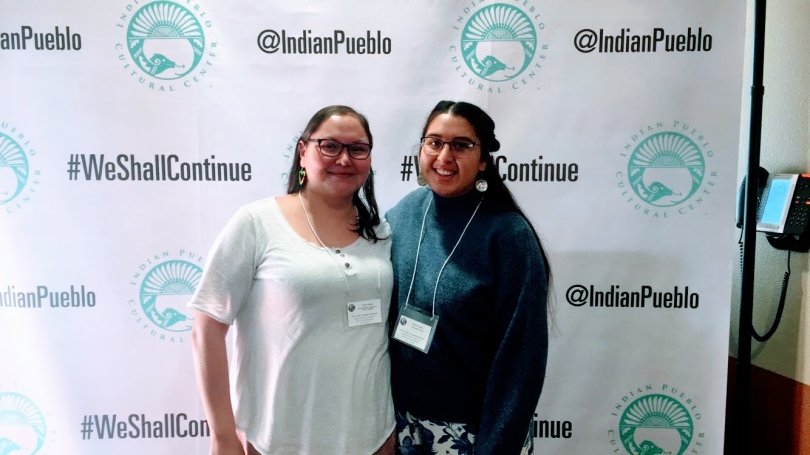
- Public Policy
- Leadership
- Funding
- News & Events
- About the Center
Back to Top Nav
Back to Top Nav
Back to Top Nav
Back to Top Nav
At the 2019 Keres Children's Learning Center Symposium, I met Montessori and language teachers from tribes all over the country, including a Dartmouth alumn working on Lakota language now. I'm so grateful to KCLC for bringing this community of educators together and allowing me to join them. Before meeting Trisha Moquino, the founder of KCLC, I had not known that there were any Native Montessori schools, let alone Native language and culture immersion Montessori schools. The panelists were educators, school founders, community members, students, alumni, parents, and elders of these schools. This variety of speakers allowed us to discuss Native Montessori schools in their entirety, from why language revitalization is so important, to how Montessori can be a supportive tool for language acquisition and indigenous excellence, to how to follow state and federal education policies while using alternative education approaches.
I was struck by the commonalities between Native worldviews, values, and goals and the Montessori approach. There was discussion about the history of Native education and the trauma that it has created, particularly during the boarding school era, but even into modern days. Many of the educators who attended the conference were Native. They all seemed focused on preserving their language and culture, providing culturally relevant classroom materials and curricula, supporting their students’ emotional well-being as well as intellectual advancement, and encouraging community participation among students. A community panel of KCLC teachers, parents, and elders meaningfully articulated how the Montessori approach promotes academic excellence, was built to support language acquisition, allows for a broader community engagement, creates future leaders with skills of independence and codependence, and treasures children and their gift to the world. They found that these elements were in keeping with their own community’s needs and have seen great success in creating speakers of their language.
The conference was formatted to encourage networking among its attendants, so I was able to speak to potential future donors and students and teachers interested in the same field as me. I plan on visiting two of them to see Wampanoag and Lakota Montessori immersion schools, which I hope to include in my senior thesis. Ultimately, this conference provided me with a new support system and contacts that are likewise studying language revitalization and indigenous education, gave me hope and concrete examples of my life goal of creating a Montessori Hupa language and culture immersion school, and reminded me of the joy that comes from teaching indigenous languages.
-Submitted by Muriel Ammon '21, Rockefeller Center Mini Grant Recipient
The Rockefeller Center's Mini-Grants program funds registration fees for students attending conferences, as well as the costs of bringing guest speakers to Dartmouth. The views and opinions expressed here are the author’s own and do not necessarily represent the views and opinions of the Rockefeller Center or constitute an endorsement by the Center.